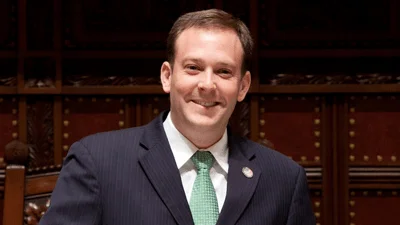The U.S. State Department and Department of the Treasury announced they will impose sanctions on seven Iranian leaders who are said to be responsible for human rights abuses or censorship.
The sanctions are a direct result of the Morality Police’s, and by extension, the Iranian government’s, crackdown on the right to freedom of expression and right of peaceful assembly following protests over the death of Mahsa Amini, Secretary of State Antony Blinken said, according to an Oct. 6 State Department news release.
“The United States will promote accountability for all those who direct and support actions that deny the people in Iran their rights to freedom of expression and of peaceful assembly,” Blinken said in a post on Twitter. “Today we designated seven security apparatus leaders responsible for the crackdown.”
The U.S. Treasury's Office of Foreign Assets Control is designating Iranian Minister of the Interior Ahmad Vahidi, Iranian Minister of Communications Eisa Zarepour, Deputy Operations Commander of the Law Enforcement Forces Hossein Sajedinia, Deputy Political Commander of the IRGC Yadollah Javani, Head of the Iranian Cyber Police Vahid Mohammad Naser Majid, IRGC Commander Hossein Nejat and LEF Police Chief in Tehran Hossein Rahimi, according to a Treasury Department news release.
“The rights to freedom of expression and of peaceful assembly are vital to guaranteeing individual liberty and dignity,” Under Secretary of the Treasury Brian Nelson said in the Treasury release.
Vahidi is receiving sanctions for having deployed LEF to subdue protestors in Iran, including protests over the death of Mahsa Amini, the Treasury release reported. Lethal force has been used against protestors on multiple occasions in the past and has been made a key instrument of the Iranian regime. Vahidi recently explicitly threatened protestors who continue to challenge the regime.
Vahidi had previously been designated in June 2010 for ties to Iran's nuclear and WMD programs, the Treasury release said. He also oversaw the bombing of the Argentine Israelite Mutual Association building in Buenos Aires, Argentina, which resulted in the deaths of 85 people and wounded hundreds.
Zarepour was responsible for the Iranian government's attempt to block internet access to millions of Iranians, the release reported. Zarepour has called social media platforms vehicles for carrying the messages of protesters and said the internet will remain restricted as long as the protests persist.
Sajedina and Javani received designations for leading their respective organizations in the violent suppression of protests, according to the Treasury release. Majid received designations due to his utilization of the Iranian Cyber Police in regularly monitoring Iranian internet users, filtering websites and blocking content the Iranian government deems objectionable.
Nejat is being designated for his role as head of Sarallah, IRGC’s security apparatus based in Tehran, for their subsequent role in suppressing anti-government protests in Tehran, the release reported. Rahimi has been overseeing the Morality Police's hijab compliance enforcement in the capital and has spearheaded the Nazer plan in Tehran, which placed Morality Police throughout the capital.









